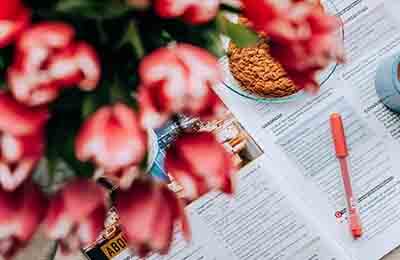初一册英语知识点
前言:想要写出一篇令人眼前一亮的文章吗?我们特意为您整理了5篇初一册英语知识点范文,相信会为您的写作带来帮助,发现更多的写作思路和灵感。

初一册英语知识点范文第1篇
短语句型:总结了初中英语教学,初中英语单词,初中英语作文,初中英语辅导中务必掌握的英语考点。
1,问姓名的方式:What’syourname?MayIhaveyourname
回答姓名的方式Myname’sJenny./I’mJenny./Jenny.
姓:lastname/familyname
名字:firstname/givenname。
2,问电话的方式What’syourtelephone/phonenumber?
It’s555-3539.
3,回答这个问题answerthequestion
4,这个问题的答案theanswertothequestion这把锁的钥匙thekeytothelock
5,family集合名词(这个词是郑州中考英语的重点词汇之一,要重点把握,决胜河南中招英语)
初一册英语知识点范文第2篇
1、如有always ,often, usually, sometimes, seldom, never, once a....,every...用一般现在时,第一、二人称复数后跟动词原形,第三人称单数后跟动词加's'/'es'。
2、如有now ,look! ,listen, at the moment ....用现在进行时,结构是be (am, is, are) +v-ing
3、如有tomorrow, the day after tomorrow, from now on, in +一段时间, some day, next....用一般将来时,结构:will + v原 be going to +v原(没有动词用be )
4、如有yesterday, ......ago , last....just now.....用一般过去时动词加ed
give sb. Sth.=give sth. to sb. 给某人某物 every day每天,
write down 写下,记下write it (them) down everyday每天的,日常的,
how about doing sth.=what about doing sth.做....怎么样 each other 互相.
thanks a lot= thank you very much非常谢谢
回答That's all right. =You're welcome.= That'OK.= It's my pleasure.=Not at all.Why don't you+V原...=why not+...V原 为什么不
help sb. with sth. 在某方面帮助别人 help sb. (to )do sth.帮助某人做某事
with one's help=with the help of sb.在某人的帮助help oneself to sth.请自用食物
watch sb. do sth. 看到某人做了某事,(现在没有做,做过)
watch sb. doing sth.看到某人正在做某事(正在做)see, hear类似
remember to do sth.想起记得要做某事,未做事 remember doing sth.相起记得做过某事
forget to do sth. 忘记要做某事 forget doing sth.忘记做过某事
welcome back欢迎回来 , new term新学期
this term这学期 , next term 下学学期,
last term上学期, give you some advice给你一些建议,
why not 为什么不, make a mistake=make mistakes犯错误,
correct spelling正确的拼写, what else?=what other things? 还有什么
a piece of advice 一条建议, follow /take one's advice采用别人的建议,
send sth to sb.=send sb. sth. 寄给某人 send for派人去请/取
send up发射. all the time一直
enjoy oneself=have a good time=have a great time=have fun, 玩得愉快
lots of =a lot of =many(可数)much(不可数)许多 , ,
spend : sb. spend some time on sth.某人花费时间做某事
sb. spend some time (in) doing sth. 某人花费时间做某事
Sb. spend some money on sth. 某人花费钱买某物
Sb. spend some money (in) buying sth.某人花费钱买某物
Cost: sth. cost sb. some money 某物花去某人钱
pay: sb. pay some money for sth. 某人支付钱
Take: It takes (took) sb.some time to do sth.做某事花去某人时间
ask for 请求,要求, ask sb. for sth.向某人要某物
ask sb. to do sth.要求某人做某事 a piece of一块
enjoy doing sth喜欢做某事.finish,practise, mind, miss ,consider,keep, continue,这些词语后跟动名词形式V-ing
place sth.in =put sth. in 把某物放在…里面
else常修饰不定代词,关系代词或副词,也可修饰all, much,little等,else要位于其后。所有格为else's.
take a deep breath深呼吸, catchhold one's breath屏住呼吸,
out of breath上气不接下气, wish sb. to do sth.希望某人做某事,
the number of …的数目,后跟名词复数,动词用三单, a number of =many,大量,许多后跟名词复数,动词用复数形式。a large number of, a small number of ,
invite sb.to do sth. 邀请某人做某事 find+ it+ adj+to do sth.发现做某事怎么样
try to do sth.尽力做事 try doing sth. 尝试做某事
try not to do sth .尽力不做某事 try one's best尽某人的努力,
a group of 一组,一群, borrow sth from sb.从某人处借入某物,
lend sth.to sb=lend sb.sth.借给某人某物 keep借一段时间
practice doing sth.,练习做做某事 come from=be from来自,
look for 寻找, look after=care for=take care of照顾
look up 向上看,查阅, look like看起来像,
look at 看着, look on sb. as把某人看作,
look forward to doing sth. 盼望,期待做某事 look over检查,翻阅 ,
look out当心,向外看 , look through仔细查看,
be ready for =get ready for=prepare for为…, be ready准备好 ,
be (get ) ready to do sth.准备做某事,乐意做某事 translate…into… 将…译成…,
take a message捎个信, leave a message留个信,
be good for 对…有好处, be good at =do well in擅长于…
be poor at =be bad at =do badly in=be weak in不擅长… Think of 想起,
think about想出, think over仔细考虑,
else修饰不定代词something,everything,anything,nothing,somebody,anybody,
nobody和who, what,when,where时放后,
四说,1,speak说语言,2.say说内容,3,talk与谁说,4,tell告诉,讲述,
四看,1,watch观看电视,比赛和表演,2,see看人,电影,医生,风景,
3,read看书,报,4,look就看。 看场电影要用see,读书看报用read 电视、戏剧、比赛,凡是表演用watch,observe细观察,一时注意用notice.
make+宾语+补足语(形容词)使某人某物怎么样。
.make+宾语+do 让某人做某事
make+宾语+过去分词 使某人被怎么样;make friends with sb.与某人交朋友,
hear of听说, hear from收到某人的来信,
be bad for对…有害, it is +adj.+of sb +to do sth.写性格,品质 kind, good
nice ,right,wrong,clever,careless,polite,foolish等。
It is+adj+for sb +to do sth. 对物的评价difficult,easy hard,dangerous,important,等
write to… 给…写信, next to 在…旁边,
do some concerts办音乐会, speak to sb.和某人讲话,
say hello to sb. 给某人问好, say bye to sb.向某人说再见,
show sb. around somewhere带某人参观某地, learn sth from sb.向某人学习
choose the correct answers选择正确答案, correct the mistakes改错,
match …with…把…和…搭配起来
建议:1.why don't you do sth?=why not do sth?
2.How about doing sth?=what about doing sth?
3.You should /can do sth. 4.Remember to do sth.
5.Don't forget to do sth. 6.can you do sth ?
7.Let's do sth. 8.It'sa good idea to do
9.would you like to do ? 10.Shall we do
11.You'd better (not )do sth.
回答:That's a good idea.Thanks a lot.
Great, OK. That's right. All right. Good idea. Sure.
二、句型
1. 疑问词 how 的用法
(1) 怎样,用什么手段,方法/交通工具
How are you? / How is she?
How did he do it? / I don't know how to swim.
How do you come to school?
(2) 情况如何(指身体健康状况) How are you?
(3) how many,how much 表示"多少"其中how much 还可以表示钱数。
how many 后接可数名词复数,how much 接不可数名词。
How many times do you go to the park?
How many pens do you want?
How much water do we drink every day?
How much are those pants?
(4) how often 是对动作发生的“次数”提问,询问的是频率“多久一次”
回答可以是:Every day. / Once a week. / Three times a week. / Often. / …
How often do you play tennis?
How often do you surf the Internet?
(5) How old …? 询问年龄 How old are you? I am five.
(6) How about …? ……如何?……怎么样? How about going to the movies?
2. time 表示不可数名词,意为“时间”。
表示可数名词,意为“次数,倍数”
What time is it?
I go to the movies three times a week.
注意“次数”的表达方法
一次 once,两次 twice,三次或三次以上用基数词加上 times:
three times, five times, one hundred times
表示“……几次”的表达方法是:
once a day/ a week/ a month/ a year
twice a day/ a week/ a month/ a year
2. exercise v./ n. shop v./ n.
He often exercises on weekends.
We often do / take exercise on weekends.
We often shop on weekends.
There are many shops in the neighborhood.
4. as for 意为“就……而论;至于”
As for fruit,I eat it sometimes.
As for him,I never want to see him here.
至于他,我永远不希望在这里见到。
5. My mother wants me to drink it.
我妈妈想要我喝。
want to do sth. 想要做某事
want sb. to do sth. 想要某人干某事
Do you want to go to the movies with me?
你想和我一起去看电影吗?
I want you to help me with my math.
我想要你帮我学数学。
有很多动词后面用这种结构做动词的复合宾语:
ask sb. to do sth. 叫某人做某事
tell sb. to do sth. 告诉某人去做某事
help sb. (to) do sth. 帮助某人做某事
6. She says it's good for my health.
她说它对我的健康有意。
be good for … 表示“对……有益(有好处)”
其反义为:be bad for … 对……有害/无益
It's good for us to do more reading.
多读书对我们有好处。
Drinking milk is good for your health.
喝牛奶对你的健康有益。
Reading English is good for studying English.
对英语对学习英语有益/有帮助。
Reading in bed is bad for your eyes.
在床上读书对你的眼睛有害。
7. usually when I come home from school
通常是在我从学校回家时
When + 从句 当……时候
I often stay at home when it is rainy.
8. I try to eat a lot of vegetables. try to do sth. 尽量/尽力做某事
I'll try to learn English well. 我会尽量尝试学好英语的。
You must try to take more exercise. 你必须尽量多做运动。
9. I look after my health. look after 照顾
My brother is ill. I have to look after him today.
我的弟弟病了。我今天不得不照顾他。
All the students must look after the desks and chairs.
有的学生必须照看好课桌椅。
He often helps his mother look after his little sister.
他经常帮助他的妈妈照顾他的小弟弟。
10. My healthy lifestyle helps me get good grades.
我健康的生活方式帮助我取得好的成绩。
help sb.(to) do sth. 帮助某人做某事
She often helps me learn math. 她经常帮助我学数学。
11. Good food and exercise help me to study better.
好的食物和运动帮助我学习得更好。
help sb. (to) do sth. 帮助某人做某事
12. Is her lifestyle the same as yours or different?
= Is her lifestyle the same as your lifestyle or is her lifestyle different from your lifestyle?
她的生活方式和你的一样或是不同?
be the same as … / be different from … 与……一样/与……不同
She looks the same as her sister. 她看起来跟她的妹妹很像。
This book is different from that one. 这本书跟那本书不一样。
13. I think I'm kind of unhealthy. 我想我有点不健康。
kind of = a little a kind of 一种
14. maybe (adv.) = perhaps 也许,可能 Maybe he knows the answer.
Maybe they'll go skateboarding. He may know the answer.
15. although = though 虽然 Although he's ill, he goes to school on time.
虽然他生病了,但他还是准时上学。
She eats a lot of chocolate, although she is very fat.
虽然她很胖,但她却吃许多的巧克力。
16. A lot of vegetables help you to keep in good health.
A lot of = lots of = many/ much 许多
keep in good health = keep healthy = stay healthy
keep + 形容词 表保持某种状态
Keep quiet! The baby is sleeping.
那婴儿正在睡觉,保持安静!
We must keep our classroom clean.
我们必须保持我们的教室干净。
17. 注意 sometimes 与几个形似的词的区别。
(1) sometime 是副词,意为“在某个时候;某时”
Will you come again sometime next week?
下周的某个时候你会再来吗?
She was there sometime last year.
她去年某时去过那。
(2) some time 是名词词组,意为“一段时间”,做时间状语用
I will stay here for some time.
我将在这呆一段时间。
He worked for that company for some time.
他为那家电脑公司工作了一阵子。
(3) some times 是名词词组,意为“几次,几倍”
I met him some times in the street last month.
上个月我在街上遇到他好几次了。
The factory is some times larger than that one.
这间工厂比那间大好几倍。
(4) sometimes 是频度副词,意为“有时”
He sometimes goes skateboarding on weekends.
他有时周末去滑滑板。
18. That sounds interesting. 那听起来有趣。
look(看起来),sound(听起来),smell(闻起来),taste(尝起来),feel(觉得),seem(好象),grow(变得) , get(变得)等词在英语中可用作系动词,后跟形容词作表语。
It tastes good. 这味道好。
初一册英语知识点范文第3篇
1,Let’splaysoccer.=LetusplaysoccerLetmehelpyou.
letsbdosth让某人做某事(sb代表人,如果是代词用宾格,do代表动词原形)
2,那听起来不错Thatsoundsgood.
3,play+球类表示“踢,打,玩......”playfootball
play+棋类playchess
play+the+乐器表示“弹奏……乐器”playthepiano
4,interesting修饰物interested修饰人beinterestedin···对···感兴趣
boring修饰物bored修饰物
relaxing修饰物relaxed修饰物relax动词放松Relaxyourself
5,很多体育收藏品agreatsportscolletion
6,everyday每天everyday日常的
7,做运动playsports
语法:初中英语语法基础知识,也是初中英语考试的复习重点,河南中招英语考试。
1,句中不含be(am,is,are)动词的一般疑问句的变法----也就是说句中谓语动词是实义动词时,要变为一般疑问句,在句首加do/does(第一人称变第二人称,动词变原形其他的语序不变。
Ihaveacomputer.Doyouhaveacomputer?
Shelikesplayingping-pang.-Doesshelikeplayingping-pang.
2,一般句子中当主语是第三人称单数的时候,谓语动词要起变化。具体的变化为:一般情况加s,know-knows,以s,x,ch,sh,o结尾的加es,teach-teaches,go-goes,以辅音字母加y结尾,把y改为i,再加esstudy-studies
3,do/does叫做助动词(语法需要加上去翻译部出来的动词)时,后面接动词原形,
初一册英语知识点范文第4篇
关键词:英语教学;创新;初中生
中图分类号:G62 文献标识码:A 文章编号:1005-5312(2014)12-0230-01
一、挖掘英语课本中的创新教育素材
现行英语课本中许多内容是最为生动的创新教育素材,教师在指导学生学习语言知识的同时,可抓住时机利用这些素材引导学生在学习过程中勇于开拓创新。
例如,第三册介绍了美国发明家Thomas Edison童年的故事,第一册又介绍了美国著名的动画片大师Walt Disney的传奇经历,教师在教授这些课时可以启发和引导学生学习他们善于动脑、勤于动手、乐于创新的精神。
又如第二册第39课中有个关于乘电梯的问题:“Why doesn't he use the lift for the last three floors?”文中也没有列出标准答案。教师便可以充分利用这个问题让学生积极展开讨论,训练学生的发散性思维能力,寻求所有可能的答案。
二、在课堂教学过程中培养学生的创新能力
(一)鼓励学生的求异思维
在英语教学过程中,教师应引导和鼓励学生打破思维定势,敢于“say no”,从而让学生多侧面、多角度地思考问题。
在课堂活动中,教师作为教学的组织者,应经常采用课堂讨论的形式,积极鼓励学生“标新立异”,用自己的独特见解来回答老师提出的问题。例如我在组织学生学习new concept english 第一册第75课时,提出了“why does the shop assistant say women always wear uncomfortable shoes?”的问题,让学生各抒己见,展开热烈讨论。有学生大胆地指责shop assistant 这句话带有明显的性别歧视,我及时表扬了他,并鼓励学生要注重理解语言的内涵,敢于发表自己的见解。
(二)以自由宽松的学习氛围张扬学生的个性
师生之间建立亲密融洽的关系有利于学生产生创造的勇气和信心。教师在英语教学过程中要重视学生自信心的培养,对于学生的成绩、优点以及思维中的合理因素要及时鼓励。
在课堂教学中常常以“用英语唠家常”的方式来引出每堂课的新知识点。并通过一系列的活动使学生在活跃的课堂气氛中理解语言、掌握语言和运用语言。例如在复习课本初一第17单元could you help me, please?时,我抱了个看似十分沉重大纸板箱子走进教室,随口就说:“the box is heavy. Who can help me?”许多学生都举手要来帮我拿,于是我把这个箱子交给了一位男同学问他:“could you help me?” 他接过箱子便说:“certainly.” 然后我又问他:“is it heavy?" 他掂了掂箱子的份量说:“no, it isn't heavy. it's light. ”(这些正是这一单元所学的内容。)随后我又借机问学生:“what is in the box, do you know?” 学生便好奇地猜起了箱子里的东西来。接着我如同变魔术般从这只大箱子里拿出了足球、小盒子、茶杯、娃娃、彩蛋、水果等东西,每样东西都要求学生描述它们的颜色和形状。凡是猜中箱子中物品的学生都得到了相应的东西作为奖品。在不知不觉中,学生已经掌握了如何用英语提供帮助和如何描述事物,在教师创设的自由宽松的情境教学中感受到了学习语言的无穷乐趣,学习英语的兴趣和学好英语的信心也在这些“似教非教”的课堂活动中被激发出来。
(三)引导学生创造性地学习语言
学生在母语环境中学习英语常常会遇到英语和母语在语音、词汇和各种表达方式上的冲突,而这正是引导学生自觉归纳语言学习规律的最佳切入点。例如,在语法结构教学中,初中生往往会对都能在汉语中表示“有”的结构“there be” 和“have/has”颇感疑惑,教师可利用时机引导学生创造性地学习,掌握语言规律。教师可让学生搜集含有“there be” 和“have/has”结构的例句。将他们分类罗列,学生的分类罗列过程,正是学生进行自主学习的过程,在这一过程中,学生便会发现“have/has”表示“拥有”而“there be”表示“在……有……”。 又如语音教学中,有的学生发现worse, word, world, work这些词中的or 都念[?:],便好奇地问老师:“是不是所有的or 只要放在w后就发[?:]的音,教师此时便可卖一下关子,而应引导学生通过查字典的方式自己去寻找答案,找出单词的发音规律来,并启发学生对于其他的语言现象进行思考,自己总结出语言规律。
(四)巧妙创设情境激发学生的学习兴趣
初一册英语知识点范文第5篇
一、建立和谐平等的师生关系,让学生愉快学习
首先,教师要关心爱护学生。我校有三分之一的学生远离父母到我校学习,老师和蔼可亲的语气、协调自如的表情、真诚的微笑、信任的眼神、恰当的鼓励,为学生带来感官上和精神上的愉悦;课后多和他们接触,从生活上多关心他们,注意他们在情绪、思想和行为上的变化,就像父母一样与之多交流、多谈心,帮助他们答疑解难。其次,教师要平等对待学生,教师要尊重学生,保护他们的自尊心和积极性,对学生应以鼓励为主,及时发现他们的点滴进步,给予肯定或表扬,使学生感觉到自己时刻在进步,不断体验到成功的喜悦,提高其学习英语的兴趣和信心。兴趣是推动学生学习的一种动力。愉快教学就是通过营造轻松、欢快的课堂气氛,培养学生的兴趣,激发学生的学习热情和积极性。我采取了一些方法,如:帮助班上的同学改英文名,尽量多讲一些关于英美国家的文化、生活故事,使他们能够爱上英语。
二、做好记忆方法指导,让学生轻松学习
1、语音规则记忆法。在教授生词的时候,我根据本课的新单词,联系旧单词,总结读音规则。如:在教新单词时,总结出字母a的读音规则。a在单词past、half中是发[a:],在单词late、game中是发[ei:]。我还同时联系学过的单词中含字母组合ar的单词dark、quarter、sharpener等,复习字母a的发音规则和字母组合ar、aw、ea的发音规则。通过这样的总结,学生能顺利地读出单词,渐渐也能写出单词。
2、扩展联想记忆法。在教生词travel的时候引导学生联想到表示旅行的交通工具,boat、bus、ship、plane、car、 taxi. minibus and so on;并且可以联系by、take、on、in的用法。当学习动词visit时,要引导学生想到一系列的与“看”有关的动词或短语see、watch、read、look at、lookaf ter、take care of。久而久之,学生在看到一个房间的时候,就有可能想到desk、chair、broom、sofa、book等一系列的单词。
3、归类集中记忆法。鼓励学生将所学过的单词归类集中:按归属范围归类,如文具类、蔬菜类、水果类、交通工具类、月份星期类;按词的用法特点归类,如带双宾语的动词、带宾语+宾语补足语的动词、后接动词不定式作宾语的动词、后接动名词作宾语的动词、动名词和动词不定式兼用作宾语有区别的动词。按句型结构归类,如“想干某事”可有如下句型:want to do sth,wantto do sth, want sth,would like to do sth.按字母组合归类,如以字母组合ook结尾的单词有cook、book、look等;按同义词、反义词进行归类,
4、构词分组记忆法。引导学生利用构词法可以迅速、准确地记忆单词,增加词汇量,下册的Unit21,动词ing构成中有一条是以重读闭音节结尾且未尾只有一个辅音字母的动词,需双写这一辅音字母再+ing,让学生着实难以理解。教师可仅就初一册中常出的需双写辅音字母的动词罗列出来,如:put-putting,begin-beginning,stop -stopping,swlm-swlmming, run-running, get-getting, sit-sitting等,然后再按一定顺序排列,使之成为一段有意义的话:get begin swim run stop put sit,得到(get) -个命令,开始(begin)游泳(swim)和跑步(run),停止(stop)比赛后,穿上(put'- on)衣服,坐下(sit)休息一会儿。这样同学们只需记住一段对于自己来说太好记不过的话,就可解决很多易错的问题。
免责声明:以上文章内容均来源于本站老师原创或网友上传,不代表本站观点,与本站立场无关,仅供学习和参考。本站不是任何杂志的官方网站,直投稿件和出版请联系出版社。


